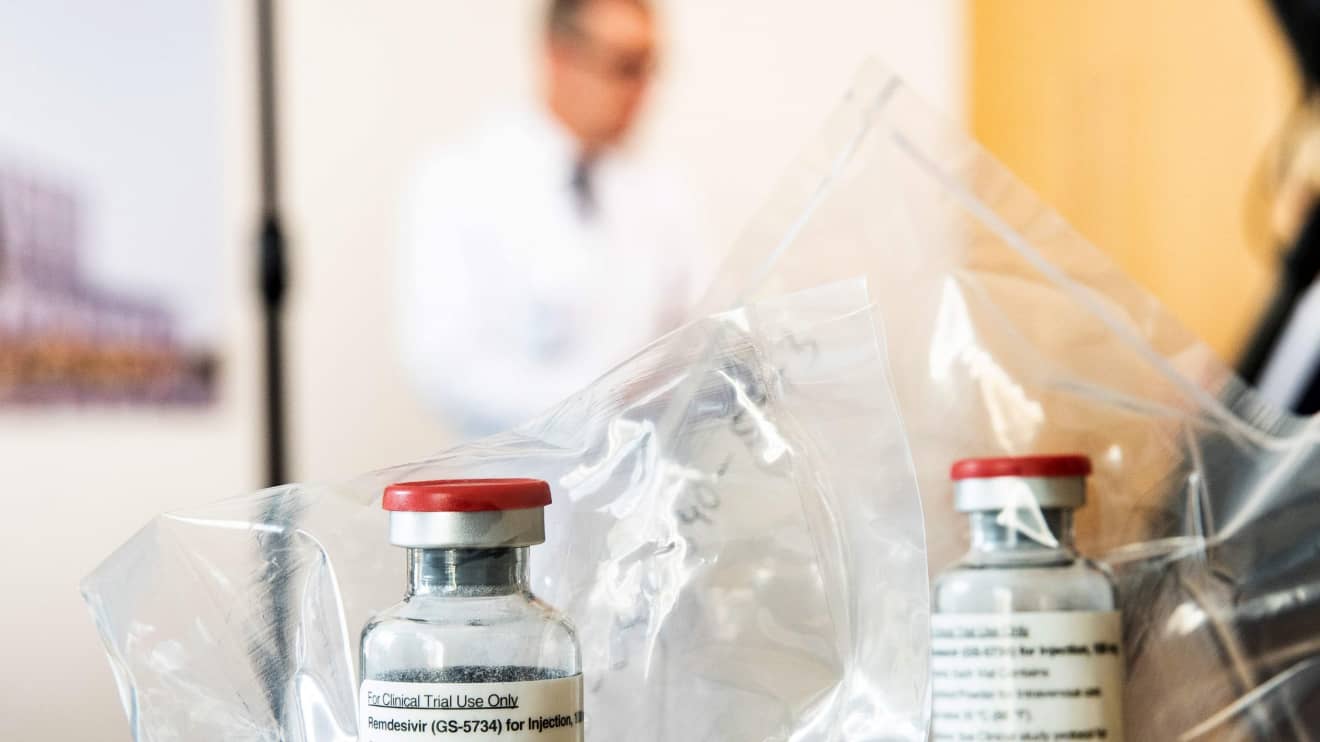This post was originally published on this site

Giliead’s remdesivir received full approval from the Food and Drug Adminstristation on Thursday.
Ulrich Perrey/Agence France-Presse/Getty Images
A drug that’s been used to treat coronavirus patients including President Donald Trump has received full Food and Drug Administration approval, but consumers should be aware of the drug’s limitations, experts say.
Gilead Science’s Inc.’s GILD, +0.19% remdesivir became the first coronavirus treatment to receive the FDA’s full approval on Thursday. Before receiving full approval, the drug — which will now be known under the brand name Veklury — was used to treat hospitalized patients who had tested positive for the coronavirus after the FDA granted emergency use authorization in May, a less rigorous type of authorization that’s used during public-health emergencies.
Despite promising results from a series of clinical studies that found Veklury can reduce recovery time when compared with a placebo, and reduce disease progression among severely ill patients who require oxygen, health experts caution that it is far from a coronavirus cure.
Don’t miss: Doctors question FDA approval of Gilead’s COVID-19 treatment and say it has limited benefits
Here are three important caveats to be mindful of:
Patients can only get remdesivir/Veklury in a hospital AFTER testing positive for the coronavirus
Unlike drugs such as Tamiflu, which is used to reduce symptoms caused by the flu, Veklury “should only be administered in a hospital or in a healthcare setting capable of providing acute care comparable to inpatient hospital care,” according to a statement from Gilead on Thursday.
In fact, the FDA thus far has only “approved Veklury for adults and pediatric patients (12 years of age and older and weighing at least 40 kg) for the treatment of COVID-19 requiring hospitalization,” Chris Ridley, a senior spokesperson for Gilead, told MarketWatch in a statement.
The patient must also have a documented positive COVID-19 test to be eligible to receive Veklury. The same applies for dexamethasone, a common steroid that has demonstrated in clinical trials in the U.K. that it can reduce mortality in severely ill COVID-19 patients.
That concerns Dr. Esther Choo, an emergency room physician who studies racism and sexism in medicine. Because test results can sometimes take days, especially for Black and Latinx people, some patients may miss the window when these treatments could be effective.
“You wouldn’t even qualify to receive it until that test is positive,” Choo previously told MarketWatch. “Some of these treatments have a treatment window, where it’s best started within a certain number of days. Say you finally get diagnosed, and it’s day 12. But the protocol says you have to be in the first 10 days of symptoms.”
Remdesivir/Veklury does not prevent death from COVID-19
A study conducted by the Worth Health Organization evaluating four antiviral drugs, including Veklury, in 11,330 hospitalized patients around the world, found that the drugs had “little or no effect” on mortality, the need for ventilation, or duration of hospital stay.
That’s according to interim findings published Oct. 15 in preprint form, meaning they haven’t been peer-reviewed. Gilead has contested these findings.
However, an analysis published in The New England Journal of Medicine on Oct. 8, based on a Phase 3 trial conducted by the National Institute of Allergy and Infectious Diseases, points to a potential reduction in risk of mortality in certain patients who received Veklury.
The out-of-pocket costs for remdesivir/Veklury are murky
Officially, Veklury costs $3,120 for a five-day course of treatment when purchased by private insurers, and $2,340 with public programs like Medicare and Medicaid.
Related: Gilead’s coronavirus drug will cost $2,340 — which sounds expensive, but here’s why it’s not
When it comes to out-of-pocket costs though, the figures are a lot less cut and dry.
“Out-of-pocket costs will be determined by individual health plans; however, we do not anticipate affordability issues,” Gilead’s Ridley told MarketWatch.
“For the uninsured, the CARES Act created a Provider Relief Fund, which helps hospitals provide uninsured patients with access to COVID-19 treatments without any out-of-pocket costs.”
“Hospitals may submit claims to the Provider Relief Fund for reimbursement for the treatment of uninsured patients with COVID-19, and if the hospital submits a claim, it cannot bill the patient for any remaining costs that may result from their stay. We are hopeful that hospitals will seek to access this funding for patient treatment needs, including Veklury.”

